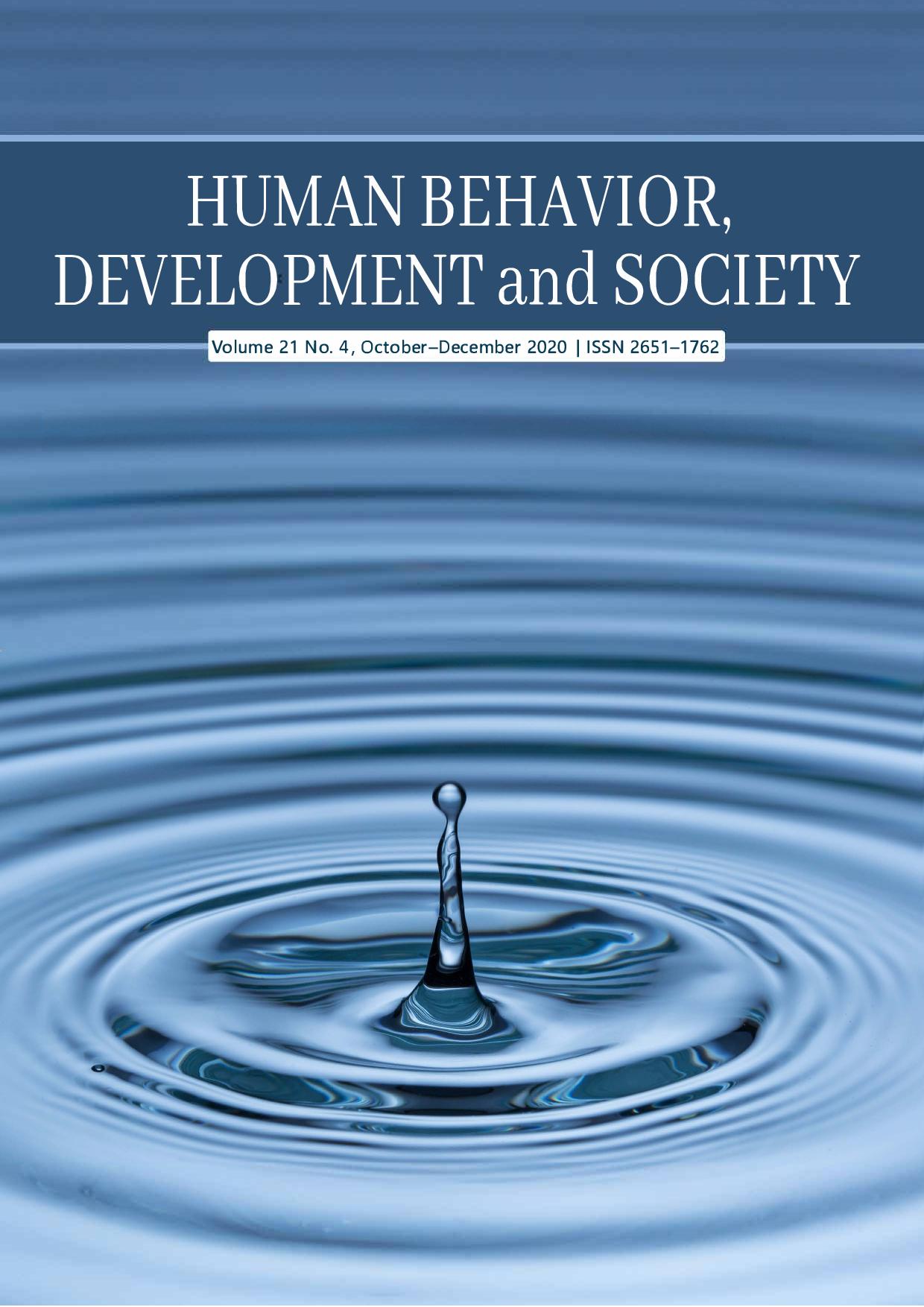No Place for “Nature” in the Sustainable Development Concept: The “Lack” of Incorporating Nature–The Case of Thailand
Main Article Content
Abstract
The objective of this article was to analyze the concept of nature, which is perceived as lacking in sustainable development in Thailand. The discussion of nature is based on the concepts of Naturalism, which considers nature through an ecocentric view, and Materialism, which considers nature as a usable resource. By looking at the example of the Eastern Economic Corridor in Thailand as a sustainable development project and its further deconstruction, this paper recommends that sustainability should be evaluated at two levels. The shallow level is based on the Materialist concept of nature and anthropocentrism. Deep-level sustainability, on the other hand, is based on environmentalism and ecocentrism. Even though deep sustainability is critiqued as being too ideal to deploy at the policy level, the concept is still useful. It could be an alternative discourse that creates space for suppressed sentiments in society.
Article Details

This work is licensed under a Creative Commons Attribution-NonCommercial-NoDerivatives 4.0 International License.
Copyright: Asia-Pacific International University reserve exclusive rights to publish, reproduce and distribute the manuscript and all contents therein.
References
Abson, D. J., Fischer, J., Leventon, J., Newig, J., Schomerus, T., Vilsmaier, U., Wehrden, H., Abernethy, P., Ives, C. D., Jager, N. W., & Lang, D. J. (2017). Leverage points for sustainability transformation. Ambio, 46(1), 30–39.
Achawanuntakul, S. (2019, September, 25). EEC kap kānphatthanā thī yangyư̄n? botrīan čhāk māp tā phut [EEC and Sustainable Development? Lesson-learned from Maptaphut]. The Momentum. https://themomentum.co/eec-and-sd_learn-from-maptaphut-port/
Aminpour, P., Gray, S., Richardson, R., Singer, A., Castro-Diaz, L., Schaefer, M., Ramlan, M. A., & Chikowore, N. R. (2020). Perspectives of scholars on the nature of sustainability: a survey study. International Journal of Sustainability in Higher Education, 21(1), 34–53. https://doi.org/10.1108/IJSHE-05-2019-0161
Arias-Maldonado, M. (2016). Nature and the Anthropocene: The sense of an ending? In P. H. Pattberg & F. Zelli (Eds.), Environmental Politics and Governance in the Anthropocene: Institutions and Legitimacy in a Complex World (pp. 31–46). Routledge.
Asara, V., Otero, I., Demaria, F., & Corbera, E. (2015). Socially sustainable degrowth as a social–ecological transformation: Repoliticizing sustainability. Sustainability Science, 10(3), 375–384.
Boonchai, C., & Beeton, R. J. (2016). Sustainable development in the Asian century: An inquiry of its understanding in Phuket, Thailand. Sustainable Development, 24(2), 109–123.
Boossabong, P. (2019). Governing Bangkok's city food system: Engaging multi-stakeholders for smart, sustainable and inclusive growth. City, Culture and Society, 16, 52–59.
Brundtland, G. H. (1987). Our common future. Report of the world commission on environment and development: Our common future. https://sustainabledevelopment.un.org/content/documents/ 5987our-common-future.pdf
Capra, F. (1996). The web of life: A new synthesis of mind and matter. Anchor Books.
Charoensin-O-Larn, C. (2011). Wathakam kanphatthana [Development Discourse]. Vipasa.
Connelly, J., Smith G., Benson, D., & Saunders, C. (2003). Politics and the environment: From theory to practice (2nd ed.). Routledge.
EEC Office. (2019). About EEC. Eastern Economic Corridor (EEC). https://eng.eeco.or.th/en/vision-mission
Escobar, A. (1996). Construction nature: Elements for a post-structuralist political ecology. Futures, 28(4), 325–343.
Geisinger, A. (1999). Sustainable development and the domination of nature: Spreading the seed of the western ideology of nature. Boston College Environmental Affairs Law Review, 27(1). https://lawdigitalcommons.bc. Edu/ealr/vol27/iss1/3/
Ives, C. D., Abson, D. J., von Wehrden, H., Dorninger, C., Klaniecki, K., & Fischer, J. (2018). Reconnecting with nature for sustainability. Sustainability Science, 13(5), 1389–1397.
Kane, A., & Kane, J. (2013, April 3). Waldkindergarten in Germany. Green Teacher, (94), 16. https://greenteacher.com/back-issues-index/green-teacher-94-fall-2011/
Kinsley, D. (1995). Ecology and religion: Ecological spirituality in cross-cultural perspective. Prentice Hall.
Kree-Aksorn, T. (2019, December 24). EEC (1): Mai mī ratthaprahān mai mī thāng thamdai [EEC (1): No coup, no project]. https://prachatai.com/journal/2019/12/85663
Mill, J. S. (1874). Three essays on religion. Longmans.
Neumayer, E. (2003). Weak versus strong sutainability: Exploring the limits of two opposing paradigms. Edward Elgar.
Piampongsan, P. (2005). Singwǣtlō̜m sưksā [Environmental Education]. Chulalongkorn University Press.
Redclift, M., & Woodgate, G. (2013). Sustainable development and nature: The substitution of capitals.
Environment, Politics and Development (Working Paper Series, WP, 46). Department of Geography, King’s College London.
Rolston, H., III. (1997). Nature for real: is nature a social construct? In T. D. J. Chappell (Ed.), The philosophy of the environment (pp. 38–64). University of Edinburgh Press.
Sattayanurak, A. (2002). Niwet prawatisat: Phromdaen khwam ru [Ecological history: Boundaries of Knowledge]. Khob Fai Publishing.
Sen, A. (2000). Development as freedom. Anchor Books.
Sengers, F. (2017). Cycling the city, re-imagining the city: Envisioning urban sustainability transitions in Thailand. Urban studies, 54(12), 2763–2779.
Thathong, K. (2010). A study of suitable environmental education process for Thai schools context. Research in Higher Education Journal, 7, 1–7. https://www.aabri.com/manuscripts/09378.pdf
United Nations. (1992). Rio declaration on environment and development (No. E.73.II.A.14). United Nations Conference on Environment and Development. http://www.un-documents.net/rio-dec.htm
Whitehead, M. (2014). Sustainability. In C. Death (Ed.), Critical environmental politics (pp. 257–266). Routledge.


